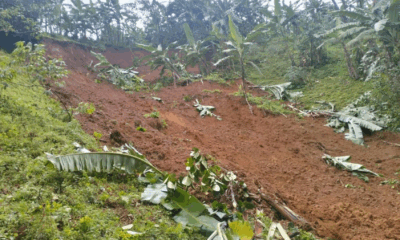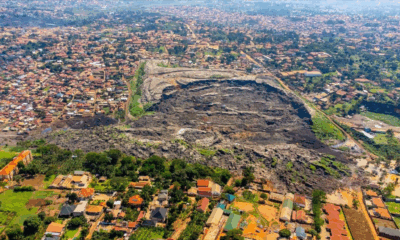Environment
World in $1.5tn ‘Plastics Crisis’ Hitting Health From Infancy to Old Age, Report Warns
Plastic production has increased more than 200 times since 1950 and hits health at every stage from extraction to disposal, says review in the Lancet
Plastics are a “grave, growing and under-recognised danger” to human and planetary health, a new expert review has warned. The world is in a “plastics crisis”, it concluded, which is causing disease and death from infancy to old age and is responsible for at least $1.5tn (£1.1tn) a year in health-related damages.
The driver of the crisis is a huge acceleration of plastic production, which has increased by more than 200 times since 1950 and is set to almost triple again to more than a billion tonnes a year by 2060. While plastic has many important uses, the most rapid increase has been in the production of single-use plastics, such as drinks bottles and fast-food containers.
As a result, plastic pollution has also soared, with 8bn tonnes now polluting the entire planet, the review said, from the top of Mount Everest to the deepest ocean trench. Less than 10% of plastic is recycled.
Plastics endangered people and the planet at every stage, the review said, from the extraction of the fossil fuels they were made from, to production, use and disposal. This results in air pollution, exposure to toxic chemicals and infiltration of the body with microplastics. Plastic pollution can even boost disease-carrying mosquitoes, as water captured in littered plastic provides good breeding sites.
The review, published in the leading medical journal the Lancet, was released before the sixth and probably final round of negotiations between countries to agree a legally binding global plastics treaty to tackle the crisis. The talks have been dogged by a deep disagreement between more than 100 countries that back a cap on plastic production and petrostates such as Saudi Arabia that oppose the proposal. The Guardian recently revealed how petrostates and plastic industry lobbyists are derailing the negotiations.
“We know a great deal about the range and severity of the health and environmental impacts of plastic pollution,” said Prof Philip Landrigan, a paediatrician and epidemiologist at Boston College in the US, and lead author of the new report. He said it was imperative the plastics treaty included measures to protect human and planetary health.
“The impacts fall most heavily on vulnerable populations, especially infants and children,” he said. “They result in huge economic costs to society. It is incumbent on us to act in response.”
Petrostates and the plastics industry have argued the focus should be on recycling plastic, not cutting production. But, unlike paper, glass, steel and aluminium, chemically complex plastics cannot be readily recycled. The report said: “It is now clear that the world cannot recycle its way out of the plastic pollution crisis.”
More than 98% of plastics are made from fossil oil, gas and coal. The energy-intensive production process drives the climate crisis by releasing the equivalent of 2bn tonnes of CO2 a year – more than the emissions of Russia, the world’s fourth biggest polluter. Plastic production also produces air pollution, while more than half of unmanaged plastic waste was burned in the open air, further increasing dirty air, the report noted.
More than 16,000 chemicals are used in plastics, including fillers, dyes, flame retardants and stabilisers. Many plastic chemicals were linked to health effects at all stages of human life, the report said, but there was a lack of transparency about which chemicals were present in plastics.
The analysis found that foetuses, infants and young children were highly susceptible to the harms associated with plastics, with exposure associated with increased risks of miscarriage, premature and stillbirth, birth defects, impaired lung growth, childhood cancer and fertility problems later in life.
Plastic waste often breaks down into micro- and nano-plastics which enter the human body via water, food and breathing. The particles have been found in blood, brains, breast milk, placentas, semen and bone marrow. Their impact on human health is largely unknown as yet, but they have been linked to strokes and heart attacks and the researchers said a precautionary approach was needed.
Plastic is often seen as a cheap material but the scientists argue it is expensive when the cost of health damages are included. One estimate of the health damage from just three plastic chemicals – PBDE, BPA and DEHP – in 38 countries was $1.5tn a year.
The new analysis is the start of a series of reports that will regularly track the impact of plastics. Margaret Spring, a senior lawyer and one of the report’s co-authors, said: “The reports will offer decision-makers around the world a robust and independent data source to inform the development of effective policies addressing plastic pollution at all levels.”
Source; Gaurdian
Comments

























